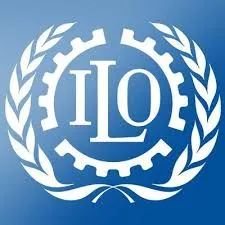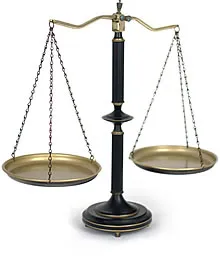ILO Administrative Tribunal dismisses complaints against EPO president
January 30, 2018
The Administrative Tribunal of the ILO (ILOAT), which decided a series of cases concerning the EPO in its 125th session last week, dismissed a complaint of the former SUEPO trade union chairman Elizabeth Hardon against her downgrading by EPO president Benoit Battistelli.

The mail was spread in a wider circle, created unrest and on 22 June Hardon and the Vice-President of Directorate-General 4 (VP4) met and agreed she would send a new mail and withdraw her accusations, which she did. This seemed the end of the turmoil around the tragic case, but when Mr A. read the first email upon his return from leave on 25 June, he went on sick leave, shocked. In December 2012 he requested the EPO president to start an investigation, which happened. But although the EPO’s Disciplinary Committee considered that VP4 had definitively closed the case, Battistelli notified Hardon on 25 February 2014 ‘that he had decided to impose on her the disciplinary sanction of downgrading to grade A3, step 13, with effect from 1 March 2014, as he considered that she had committed serious misconduct. He explained that he could not follow the recommendation of the Disciplinary Committee as it was tainted with errors of fact and law.’
We cannot go into every detail of the case, which is available here, but Hardon’s complaint against this decision of Battistelli was dismissed by the ILOAT. ‘Consistent case law holds that “[t]he executive head of an international organisation is not bound to follow a recommendation of any internal appeal body nor bound to adopt the reasoning of that body.’
In its decision the ILOAT wrote: ‘The Tribunal concludes the complainant acted carelessly, with regard to a very sensitive subject, conscious of the probability that her statement would highly offend other staff members and would create great unrest among colleagues, damaging the work environment. The Tribunal observes the complainant’s actions were serious and wrong and cannot be justified by an alleged good purpose. Considering the above, taking into account the discretion enjoyed by the disciplinary authority and, in particular, the complainant’s refusal to apologize to Mr A. and the serious consequences of that behaviour on Mr A.’s health, the Tribunal finds that the contested disciplinary measure is not disproportionate.’
In an unrelated case Hardon was fired in 2016, a decision which she has contested and still has to be decided by the ILOAT.
Pétiaud, Corcoran
Another case the ILOAT decided last week concerned Aurélien Pétiaud, a long-time EPO employee and staff representative. He had been ordered to participate in sessions of the Internal Appeals Committee (IAC). ‘On 25 March 2014 the complainant informed the Chairperson of the IAC that he would not participate in the IAC session held that day as he was on strike. He subsequently informed the Chairperson of the IAC that he would not be able to attend the June and July sessions of the IAC because of his existing workload and the limited support received from the secretariat.’
On 3 November 2014 he was informed of the decision ‘taken by the President of the Office to suspend him from duties until further notice (…).’ In the meantime, on 10 November 2014, the Principal Director of Human Resources informed Pétiaud that the matter had been referred to the Disciplinary Committee. This Committee concluded on 17 December 2014 ‘the complainant had not committed misconduct by going on strike for half a day, by not sitting in most of the June and July sessions of the IAC and by withdrawing from any further work in the IAC in October.’ Some errors had been made though, so the Committee recommended ‘to impose the disciplinary measure of relegation in step’ (this means a person stays in the same grade, but with a moderately lower salary). Again, Battistelli ignored the recommendation of the Disciplinary Committee and imposed ‘the disciplinary measure of downgrading’ (this leads to a lower grade and the salary reduction is much bigger).
More details about the case can be found in the decision, (3971), but again the ILOAT judged that the EPO president was allowed to ignore the Disciplinary Committee: ‘Regarding the severity of the sanction, the case law has it that “[t]he disciplinary authority within an international organisation has a discretion to choose the disciplinary measure imposed on an official for misconduct. However, its decision must always respect the principle of proportionality which applies in this area” (….). In the present case, the Tribunal finds that the sanction imposed is not disproportionate.’
Two new cases concerning the Irish (former) appeal board member Patrick Corcoran were published last week as well. His complaints relating to the seizure of his USB stick (3959) and an alleged breach of confidentiality by the EPO (3961) were dismissed. Last December, in the more important cases 3958 and 3960, the ILOAT had ordered that Corcoran, who was suspended in December 2014 by EPO president Battistelli, should immediately be reinstated in his former post and be paid moral damages totalling at 25,000 EUR and costs in the amount of 5,000 euros.
Altogether, the ILOAT issued a decision in 30 EPO cases. 17 complaints were dismissed, often because internal remedies at the EPO had not been exhausted or internal appeals had not been lodged within the prescribed time limits. Moral damages were ordered in nine cases from 3000 euro up to two years’ revenues, often in cases related to (mental) health issues leading to dismissals.
Discretion

A striking element in the decisions against Hardon and Pétiaud is that in both cases EPO president Battistelli ignored the recommendation of the Disciplinary Committee and imposed a heavier sanction. This has happened a lot, according to sources. IP Kat for instance reported about it in 2016, after the firing of Hardon and ex SUEPO-chairman Ion Brumme and the downgrading of SUEPO Treasurer Malika Weaver: ‘In all three cases the sanction imposed has been more than was recommended by the Disciplinary Committee: in the case of Elizabeth Hardon, there has been imposed a pension sanction not suggested by the Disciplinary Committee, in the case of Ion Brumme downgrading rather than firing was suggested, and in the case of Malika Weaver the Disciplinary Committee recommended suspension of career advancement, not downgrading.’
The ILOAT has confirmed this Battistelli is allowed to do this, as long as he motivates his decision. That is certainly not a high barrier, and it raises questions as to what a Disciplinary Committee is good for, if it can be put aside so easily. Combined with the ILOAT’s - not unreasonable - opinion that the ‘disciplinary authority’ has ‘discretion to choose the disciplinary measure’, and that it will only judge whether his decisions respect the principle of proportionality, it means that Battistelli has a lot of freedom to decide about the fate of staff members.
Apart from this, Battistelli nor the Administrative Council (AC) of the EPO have shown much respect for the decisions of the ILOAT, at least not in the case of Corcoran. About a week after the ILOAT’s December decision that Corcoran had to be reinstated, the AC decided in its 154th meeting nót to extend his appointment as board member and the end of his regular tenure, which reduced the effect of the ILOAT decision to about zero, and which is probably not what the ILOAT had intended or what a reasonable observer may find a fair implementation of the ILOAT's decisions.
A month later, Corcoran was offered a job in The Hague, which means he will be forced to transfer from the EPO’s Munich office, to go to a country where he hasn’t lived, to do work which is not proportionate in view of his qualifications. The AC however declared in December: ‘This decision was taken with due regard to all relevant elements. The Council expressed its satisfaction at having closed the case. In particular, it underlined its expectation that now - after a long period of intense debate - legal peace would be restored.’
For regular updates, subscribe to this blog and the free Kluwer IP Law Newsletter.
You may also like















Nor really surprised by the ILO-AT decisions
The present negative decisions of the ILO-AT exemplify a major problem in the management of internal organisations. The fact that the head of an organisation can disregard opinions/conclusions given by joint bodies, like the disciplinary or the internal appeal committee. This might be correct in law but does not correspond to the spirit of the staff regulations. Why then have joint bodies, if their opinion can be dismissed, provided some apparently good reasons are brought forward? What happens there might be legal, but is it moral? But in order to arrive in higher spheres of power morality is rarely put first. Alas. The ILO-AT is well known for rarely challenging decisions taken by an authority under its discretional power. Only if the discretionary power has been exercised in a very unfair way, the ILO-AT will react. Whether the reasons are convincing or not is a different matter, but this has nothing to do with doing justice. That is one of the big failures of the ILO-AT. Justice at the ILO-AT is not blindfolded as it should be. To much hangs on nitty gritty formal things. In the present case, the haggling between SUEPO leaders and the management of the office reminds me of a famous say: six of the one, and half a dozen of the other. To be honest, in some actions SUEPO leaders did behave at a level as low as the one of the management of the office. SUEPO leaders simply forgot who sat at the longer level. This does not excuse what the management of the EPO did, refuging itself behind an alleged immunity which boils down to impunity when it was convenient for it, but not hesitating to attack before national courts when it thought fit, as happened in the C. case. This shows the whole hypocrisy of the present upper management of the EPO. That should never be forgotten. The latest decisions of the ILO-AT will fuel the already overrated ego of the upper management of the EPO and its minions, and that is as well tragic. That they got a blow in the C. case has in any case be forgotten. But the upper management of the EPO will boast with the present negative decisions. Techrights: fingers off! Be it directly or indirectly, even by a mere link!
Concerned observer
In my view, the judgements discussed in this article provide a rather neat illustration of a worrying problem with the governance of the EPO, namely a serious imbalance of arms between EPO employees and EPO senior management. For example, in the Hardon case, the e-mail may well have shocked and offended "Mr A". This seems to have been taken by the ILO as the only relevant starting point. However, I understand that the EPO management blocked all efforts to initiate an independent investigation into the events to which Ms Hardon's e-mail referred ... and so we will never know whether her "undiplomatic" description of the events could actually have been accurate (or justified / justifiable). Thus, it is perfectly possible that by exerting control over how (if at all) events were investigated, the EPO management were able to construct their own narrative in which the dismissal of Ms Hardon appears to be an appropriate response. In the absence of any independent fact-finding, we will simply never know the truth of the matter ... and neither will the ILO. Another, more stark illustration of the imbalance of arms is provided by the ILO's response to the alleged leaking of confidential information by those "briefing against" Mr Corcoran. There is no doubt that confidential information was leaked, as there is irrefutable proof that it came into the public domain. The nature of the information and the manner in which it was leaked also point to an effort to undermine the presumption of innocence in Mr Corcoran's case. Nevertheless, clear evidence of wrongdoing by an unspecified individual led the EPO management to conduct .... no investigations whatsoever! This is precisely the opposite of what happened when the EPO management became aware of "leaks" that were unflattering to them. The huge irony and double-standards evident in the contrasting outcomes could not be more obvious. This is further compounded by the fact that a defamation action against the "leaker" is impossible ... again because of the inequality of arms. For example, Mr Corcoran's lack of access to records of internal EPO communications would make it almost impossible to identify the "leaker" ... and even if that hurdle was overcome, knowing the identity might not help (eg if the "leaker" asserted immunity from prosecution). On the other hand, those pursuing defamation claims against Mr Corcoran had full access to information obtained by "snooping" on internal communications, and did not need to worry about the defendant asserting immunity. With such an obvious (and serious) inequality of arms evident in disputes between the EPO and its employees, is there anyone out there who still believes that the "protections" and "access to justice" afforded to EPO employees are in any way comparable to those afforded to employees under EU and German / Dutch national laws? Is it therefore not time that we gave those employees the same protections and access to justice as those enjoyed by individuals who do not happen to work for an international organisation?
Peter Parker
It appears that in some cases the president is in a difficult catch 22 situation: he also has to make sure that employees, in this case Mr. "A", are safe from mobbing/bullying and/or (perhaps even criminally relevant) slander.